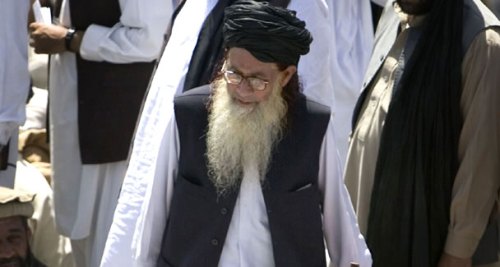The more I think about it, the more I worry about how the endgame is going to work out in Afghanistan. The problem, of course, is that the US strategy of pulling out by 2011, relying on a strategy that combines using heavy force to negotiate from a position of strength, and building Afghan institutions (particularly the police and the ANA), has about as much chance of succeeding as, to borrow a phrase from one of the greatest writers to grace us with his wit, a whelk has in a supernova.
Shafqat Mahmood seems to think so, too. In fact, once you’ve read this, you’ll begin to worry about Mr Mahmood’s mental state. Keep him away from sharp objects, make sure he isn’t left alone with pills, that sort of thing.
Grim.
The problem is that in order for the US strategy to work, the ANA needs to be in a position to secure Afghanistan on its own, with minimal foreign assistance, by next year. Moreover, it needs to have a significant number of Pashtun soldiers, in order for it to be accepted as a national army, and not an ethnic one. At the moment, US forces say none of the Afghan battalions are in a position to act independently of foreign troops. Meanwhile, policemen continue to be beheaded for ‘colluding with foreign invaders’ – hardly confidence inspiring stuff.
The other problem, of course, is that the Taliban were hardly beaten in Marja, which was supposed to be the first step in the US’s big push to force them to the negotiating table. Kandahar will be bloodier, and no less conclusive, when the coalition eventually takes it on.
Cannons to left of them, cannons to right of them.
So if the Taliban can afford to wait out the coalition (with even the UK now announcing a date for the withdrawal of troops (even if said date is 2015)), why would they take any negotiations seriously? The US is trying to force ‘reconcilables’ to the table, and to put pressure on those it considers to be impossible to negotiate with (read: the Haqqani group), but honestly, what incentive do Talibs who do come to the table have to stick to any agreements once the US is gone. The battle for Afghanistan, for them, is ideological, not driven by political agendas.
In other news, while I’m not going to touch the morass of opinion, crisis and just general unpleasantness that is the India-Pakistan dialogue process in this post, US CJCSC Adm Mike Mullen’s just left Delhi, talking about how militants could push India and Pakistan to the brink of war, and emphasising how there needs to be greater understanding, and more concrete anti-terror movement, between the two neighbours. I find this interesting only because of a recent discussion about how the US divides its military commands to separate India and Pakistan (Pakistan comes under USCENTCOM, India under USPACOM), thus making it impossible for them to think about the two together. I think that argument is interesting, but practically speaking, the US has been forced to deal with the realities of India’s and Pakistan’s problems with each other, because of Afghanistan. Whether or not it does something about these problems, though, is a whole different kettle of fish. But they do know Pakistan’s interest in Afghanistan is not divorced from its enmity with India.
 These men (the ANA) are not going to be securing anything,
These men (the ANA) are not going to be securing anything,
other than perhaps their lunch, for a while
In other news:
– General Ashfaq Pervez Kayani has been given a 3-year extension as Chief of Army Staff. The only surprising thing about this story is the length of the extension – a one or two year extension was expected, but to keep the COAS on for three more years means he will outlive the current government and all its officials (except the Senators, notably Rehman Malik) and, moreover, will muck up the Army’s seniority ranks quite royally. Nevertheless, he was always going to be given an extension, given his excellent relationship with the US, his generally non-confrontational behaviour with the democratic set-up, and the fact that he has not utterly failed at his job. Note use of the word ‘utterly’. Anyhow, enough intelligent commentary has been written on the man and his extension, so I shan’t add to the cacophony. Read Shuja Nawaz on the AfPak channel in particular, and Ikram Sehgal, who has long been arguing for changes to the overall command structure of the military. Sehgal wanted Kayani to be appointed Chairman of the Joint Chiefs of Staff Committee.
– Federal Minister for Education Sardar Aseff Ahmed says, on the fake degree issue, that Chairman of the NA Standing Committee on Education and fake-degree-witchhunter-in-chief Abid Sher Ali has no authority to deal with the issue, and that “a single person could not exceed his powers for the sake of fame”. Presumably finding out that lawmakers have lied about their eligibility for public office is a publicity stunt, according to the minister.
– Gibran Peshimam has taken the trouble to write us an op-ed telling us that he has no idea why violence breaks out in Karachi periodically. Wonderful. That’s useful.
– Crazy LHC petition of the day: Pak-Afghan transit trade agreement challenged as ‘unconstitutional‘.
– Crazy Twitter Update of the Day: Punjab Governor Salman Taseer wants to be accused of having a fake degree, defaulting on bank loans and tax fraud.





